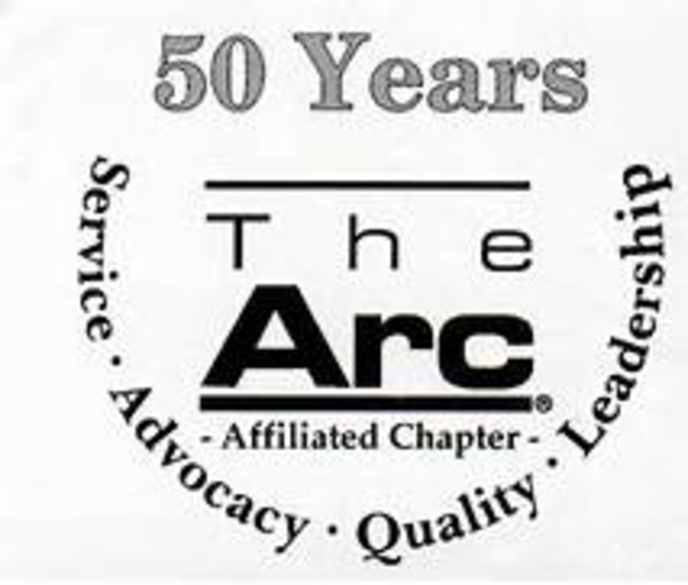
FOR IMMEDIATE RELEASE FROM THE ARC:
Owning a Home with a Special Needs Trust by The Arc
By Amy R. Tripp, Esq., Special Needs Alliance
To say that adequate housing options for persons with disabilities is a challenge is an understatement. As a result, in the process of future planning, housing is almost always one of the most important topics. Some people with disabilities would like to continue living in the family home, with appropriate supports, after Mom and Dad are gone, and parents often agree that would best serve their son or daughter’s interest. Other parents anticipate leaving funds that would allow their son or daughter to own appropriate alternate housing. In both cases, it must be determined if it makes sense for the house to be owned by a special needs trust (SNT) that is likely at the center of their plan. And as noted below, individuals and families must also weigh the benefits of home ownership versus renting to determine the best fit.
The short answer is that, in many cases, is does make sense for an SNT to own a home, but there are numerous considerations and caveats that come into play. This is an overview of the rules and issues that can arise when an SNT owns a home.
It is important first to identify what type of trust would own the home. We should distinguish between “first party” and “third party” trusts. A first party SNT is funded with the individual beneficiary’s assets and, after the death of the beneficiary, requires reimbursement to the state for Medicaid services. A third party SNT, which is funded with someone else’s assets, such as an inheritance from a parent or proceeds from a life insurance policy, is more flexible and does not require reimbursement to the state.
Options for Titling Homes
A threshold consideration in deciding whether a residence is better owned by an SNT or the individual is whether that person has legal capacity to hold title on their own and what decision-making supports the person might need. Minors simply cannot hold title and would require a guardian (in some states, a conservator) be appointed. Many adults may also need support to manage home ownership. If an adult is under guardianship or conservatorship, the guardian or conservator would likely have legal authority to manage the property. Many other adults with I/DD would benefit from using decision-making supporters to help them meet the obligations of home ownership.
For an adult with I/DD, home ownership can be empowering, as it is for all of us. The responsibilities of home ownership, as well as the status of a property owner, can have very positive impact. Families should take care to ensure that appropriate decision-making supports are in place.
If direct ownership isn’t practical, leaving a family home to a third party SNT, or buying one with trust assets, protects the property from creditors and leaves financial and maintenance issues in the hands of a trustee.
While a residence purchased by a first party SNT gains these advantages during the beneficiary’s lifetime, the home is subject to recovery by the state upon the beneficiary’s death to the extent of the costs paid by Medicaid.
Finally, it is important to look at who else might be living in the home. If the home is owned outright by a first party SNT, there may be complications if other family members also reside there. Distributions from first party SNTs are supposed to be for the sole benefit of the beneficiary, and this may be interpreted differently by various Social Security offices. Depending on the level of caregiving performed by family members, they may be required to pay rent in order to avoid affecting the beneficiary’s eligibility for government benefits. There may even be issues regarding what maintenance the trust should pay for.
Some trustees, seeking to avoid a first party trust payback, arrange for the SNT to purchase a life estate interest in the family residence. By paying a portion of the home’s value, the beneficiary has a right to live there, rent free, as long as he or she lives. In some states, however, this won’t avoid the Medicaid lien, and other family members residing in the home still may need to pay rent to avoid conflict with the sole benefit rule.
Running the Numbers
Of course, as attractive as the idea is, whether it is practical to plan to provide a house to an adult son or daughter with disabilities after you’re gone comes down to dollars.
Any time the purchase or transfer of ownership of a residence is begin considered, it is critical to prepare a detailed budget which takes into consideration things such as the cost of modifications needed for accessibility, long-term maintenance, utilities, taxes, insurance, and general upkeep. A common planning mistake is for people to create SNTs which purchase homes, only to have the housing costs consume such a large part of the available resources that other important purposes of the SNT are compromised, leading to deterioration of the property and forcing sale at a discounted price.
On occasion the solution may be as simple as finding a roommate. The trend today is for families to consolidate resources and purchase housing that provides for more than one adult. While there are some great examples of these types of arrangements, there are also many situations in which such plans simply don’t work. And many trustees are unwilling to deal with their complexity.
Beyond the numbers, persons with disabilities and their families should consider other pros and cons to homeownership, including whether the person may in the future want to live in a different neighborhood or area, the suitability of the home for future family configurations and the potential for aging in place.
Effect on Benefits
The ownership of property and the payment of housing expenses can impact the government benefits the individual may be receiving, including Supplemental Security Income (SSI) and Medicaid.
Notably, for persons who receive SSI, mortgage payments, property taxes, utilities and other housing costs paid on their behalf by an SNT are considered in-kind support (http://www.specialneedsalliance.org/how-in-kind-support-an…/) and maintenance (ISM) and will reduce SSI. Good planning can often reduce the impact of these rules, but not always.
Likewise, depending on how a home is titled, the purchase or sale of a home can trigger interruptions or reductions in benefits in the months in which these events occur. While the home is an exempt asset for SSI and Medicaid benefits, the sale of the home in the future, if titled to the individual, will result in converting an exempt asset into countable resources. If the home is titled to the SNT, then the sale of the home would have no impact on eligibility.
Medicaid liens and other estate recovery claims are potential pitfalls when persons receiving benefits own their own homes, or have homes held in some SNTs. When a first party SNT owns the home, extra attention needs to be provided if other family members are living in the home and providing support to the beneficiary. When the beneficiary dies, Medicaid is reimbursed from the remaining assets in the first party SNT. If the Medicaid lien exceeds the balance of the assets in the first party SNT and the house is owned by the SNT, then the house may be lost. This can be a great hardship for some families who provide support and services to the beneficiary.
Conclusion
Housing is always a challenge in future planning for persons with disabilities. Arranging for a stable living environment is a high priority, but the considerations are many and complex, and families and their counselors are becoming increasingly creative as they struggle with the housing shortage. Whether an SNT can or should own a house involves a number of considerations, and families should seek advice from a qualified attorney to ensure that their objectives are met.
Amy Tripp is a member of the Special Needs Alliance (http://www.specialneedsalliance.org/), a national nonprofit dedicated to assisting individuals with disabilities, their families and the professionals who serve them. SNA is partnering with The Arc to provide educational resources, build public awareness and advocate for policies on behalf of people with intellectual/developmental disabilities and their families.)
VIST The ARC HERE!:
https://www.thearc.org
 Posted By: agnes levine
Posted By: agnes levine
Wednesday, May 24th 2017 at 4:52PM
You can also
click
here to view all posts by this author...